Philanthropy and Black women: Hilary Pennington with Teresa C. Younger

Transcript
[Teresa C. Younger, a Black and indigenous woman with natural black hair with a gray streak, wearing a periwinkle-blue shirt, sits for a video conversation with Hilary Pennington, a white woman with short blonde hair, wearing a red sweater.]
[on-screen text: Teresa C. Younger, President & CEO, Ms. Foundation for Women]
TERESA C. YOUNGER: My truth is that I understand the complexity of our lives and that we don’t just get to hold any one identity. And our identities can’t be determined from the outside. They have to be determined by us.
[on-screen graphic: Social Justice Leaders on What Matters, Hilary Pennington with Teresa C. Younger]
HILARY PENNINGTON: I am really excited today to be talking with Teresa Younger, the amazing, dynamic president and CEO of the Ms. Foundation for Women. Teresa is an activist. She’s an advocate. She’s a strategist and a proven leader in both philanthropy and the policy sectors. So, Teresa, greetings to you.
TERESA: Thank you so much for having me, Hilary.
[on-screen text: Hilary Pennington, Executive Vice President of Programs, Ford Foundation]
HILARY: Oh, well, thank you. And, you know, just—I have to ask you the most obvious question, starting out in a year like this. But, you know, as a person who has been a leader on the intersection of race and gender and justice, what sense do you make of the year we’ve just had and, really, you know, where we are as a country?
TERESA: We opened a conversation in this country around race and gender, democracy and privilege and justice and equity and equality that we didn’t have going on 10 months ago. And now we are seeing philanthropy hold those conversations, education hold those conversations, corporations hold those conversations in ways that I don’t think we would’ve gotten to if we had not reached a crisis moment.
At the Ms. Foundation, the work that we are trying to do is to lift up women and girls of color, because we know their brilliance is sitting and just needs to be recognized.
In the United States, we know that Black women have been in the forefront of every single social justice movement this country has seen. And we’ve been in the forefront and behind the scenes all at the same time, and I think only more recently. And, I think, as a reflection of where we are right now in this moment in time, are we really getting to lift up and see the names of where Black women’s leadership has been directly impacting this country, its vision?
HILARY: Let’s talk about that, because you really have centered those women at the center of the Ms. Foundation. You all issued such an important report, that Pocket Change report. You know, that—your statistic was that of the $66 billion given annually in philanthropy every year in the United States, half of 1% goes to organizations led by women of color, Black women, which is astonishing. And it’s hard to let the sector off, uh, for a rhetoric around supporting the leadership of women of color with statistics like this. So, tell us, you know, what you see and what went into that report.
TERESA: Wow, so I came to the Ms. Foundation about six and a half years ago. The Ms. Foundation has, for a long time, centered the work of women and girls, women and girls of color. They were not public about it. They were not vocal about it. And when I stepped into this role, one of the things I said is we have to actually tell our own story more effectively. And we have to be bold and intentional and unapologetic about who we are doing this work for. Because in the pool of inequality, we only have so much we can do. And we drop our pebble over women and girls of color and let the ripples affect everybody else, because we believe those are the most marginalized in our society. I started asking people, “You know, what do you think, uh, how would it look if we centered women and girls of color?” And philanthropy, at the time, was not so receptive.
HILARY: Really?
TERESA: Really, really. It was not so receptive. And, in fact, it was almost like I was asking an abstract question that wasn’t—
HILARY: Teresa, let’s just be clear. This was not that long ago. This was, like, 2014, right?
TERESA: This was 2014. This was the moment that we had our first Black president. It was coming to the end of his term, the last two years. And, you know, everybody looked at the Ms. Foundation and the legacy and me coming in and said, “Well, what are you going to do?” And I thought, the only thing that I can do is speak from my realities. And my reality is that I am a Black and an Indigenous woman who has two adopted siblings, one who is Korean and one who is Japanese and Black. And I grew up in North Dakota. So my truth is that I understand the complexity of our lives and that we don’t just get to hold any one identity. And our identities can’t be determined from the outside. They have to be determined by us.
And so I started to ask, how truthful are we? And how do we work both with philanthropy as a call-in and as a call-out, right? And from there we knew what we needed to do. If we were going to be intentional about women and girls of color, we’d need to lift up their work. In that, we realized we didn’t even have a baseline to hold a conversation with philanthropy about how many dollars were going to women and girls of color. So the Pocket Change report came out of our strategic plan to create a baseline and do some research around 4,000 women of color-led organizations, of folks who said they were moving money to women and girls of color in philanthropy.
What was the nonprofit sector saying? And what was philanthropy saying, right? Sometimes there’s a big disconnect. And there was. We saw philanthropy saying, “Well, we are serving women and girls of color.” And then we were hearing from nonprofit leaders, saying, “They’re not actually asking us the questions around racial equity.” And it allowed us to really do an assessment.
Philanthropy has a built-in systemic racism that we actually have to look at. What we found was that the average grant to women organizations was $50,000. The average grant to women of color organizations was $35,000.
HILARY: I think that there’s so much learning to do for all the kinds of reasons that you just talked about, especially, you know, will we have the ability to listen to them, to center the organizations themselves. And I think that’s going to be a really challenging journey for philanthropy.
TERESA: Absolutely.
HILARY: You know, you have a very unique identity as both a fund giver and a fundraiser. What would you lovingly say to the foundations from which you raise money? What should we know that we don’t know?
TERESA: We have to understand that philanthropy is still built in a capitalistic model and a patriarchal model. We have to look at what the measurement is going to look like, not over 3 years but over 7 or 10 years. Philanthropy can be a fickle friend. We need philanthropy to stay with the movement building, with women and girls of color, for a long time. Not just in the hot moment. Not just when we have a vice president-elect who’s a woman of color. Okay? We need to look at this over a lengthy period of time. And we need to reconstruct what our measurements of success really look like.
One of the conversations that I continue to have with philanthropy is, what are you trying to do? And how much true risk are you willing to take?
HILARY: And risk as defined by who? It is generational work. It’s not common for foundations to be very long-term partners. And I think we’ve got to really call that question. What are we trying to do? And what are we trying to do is going to take longterm trusting relationships that we don’t get to come in and out of. I want to ask you a last question, which is a completely different kind of question.
TERESA: Okay.
HILARY: I read something you wrote in which you had this powerful, beautiful sentence where you talked about, you know, the nature of the work we’re called to do in the work of justice requires you being uncomfortable, learning to become comfortable with discomfort and with making other people uncomfortable. So, for you, right now, as a leader in your work, where are your places that you feel most uncomfortable?
TERESA: I don’t sit in a place of uncomfortableness about philanthropy, but I do still sit in a place of being uncomfortable around money. And, because it’s nothing I was raised with, so to be in a conversation about money, particularly because it’s a determiner for judging other people—how much money they don’t have, what they’re doing with their money—and the idea of, like, asking white people for money for women of color, because it puts me in the position to have to justify the work of my sisters.
I’m also learning how Ms. really does need to sit in the role that bridges not just philanthropy and the nonprofit sector, but how do we bridge the conversation around women of color and white women? How do we continue to bridge a conversation around gender equity that actually pushes feminism to be more inclusive of trans and gender-nonconforming folk? And so, you know, I think I’m sitting on that edge of—I’m comfortable with it, but, like, convincing others that they need to come into the conversation.
I still get a little uncomfortable walking into rooms where I don’t know anybody. And I think that’s primarily a reality of, I don’t get to leave anything outside the door. When I walk in a room, I am a five-foot-nine Black woman—it doesn’t get confused in the room, right? I have to come in and I’m expected to sit at the table, and I want to be at that table and I want to bring people to the table, but I also have to bring a voice to the table. I cannot just sit there. And there are parts of my personality that would rather sit and listen, but I actually have to be able to ask the question. And sometimes asking the question is uncomfortable because it will make somebody else uncomfortable.
HILARY: I think the things you describe are such powerful gifts. I mean, that is a really hard set of things to span. But I think, you know, you are describing the kinds of discomfort and the kinds of resolve to just stay with that, that are really what make progress possible.
And we’re so lucky to get to partner with you, Teresa, and learn with you and learn from you. And I just want to thank you so much for making the time for a conversation like this. It’s really a gift to connect with you. Thank you.
TERESA: That’s wonderful. Thank you so much. It’s been great.
HILARY: Thank you.
[on-screen text: What’s your take? Join the conversation]
[on-screen graphic: Ford Foundation logo]
Accessibility Statement
- All videos produced by the Ford Foundation since 2020 include captions and downloadable transcripts. For videos where visuals require additional understanding, we offer audio-described versions.
- We are continuing to make videos produced prior to 2020 accessible.
- Videos from third-party sources (those not produced by the Ford Foundation) may not have captions, accessible transcripts, or audio descriptions.
- To improve accessibility beyond our site, we’ve created a free video accessibility WordPress plug-in.
“My truth is that I understand the complexity of our lives and that we don’t just get to hold any one identity. And our identities can’t be determined from the outside, they have to be determined by us.”
In this episode, our vice president Hilary Pennington joins Teresa C. Younger, president and CEO of the Ms. Foundation for Women, a non-profit aiming to build women’s collective power in the US. Younger created the Pocket Change Report, which found that only half of one percent of the 66 billion dollars given annually in philanthropy goes to organizations led by women of color. Hilary and Teresa discuss how philanthropy needs to center women of color and their organizations in order to address systemic racism.
Learn more about Ms. Foundation for Women at forwomen.org and read more about the Pocket Change Report at forwomen.org/resources/pocket-change-report.
Other videos in this series
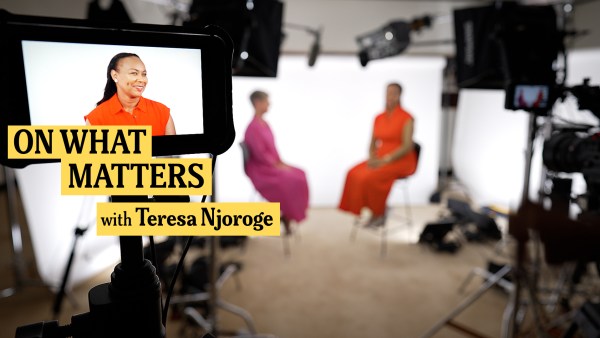
The Power of Restorative Justice With Teresa Njoroge and Hilary Pennington
Teresa Njoroge, founder and CEO of Clean Start Solutions and criminal justice reform advocate, and Hilary Pennington, executive vice president of programs at the Ford Foundation, discuss helping people who have been through Kenya’s justice system find new dignity and hope through employment.
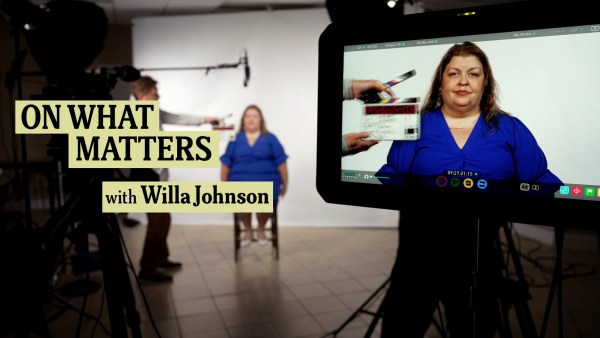
The Power of Appalachian Art With Willa Johnson and Sarita Gupta
Willa Johnson, director of the film department at Appalshop, and Sarita Gupta, vice president of U.S. programs at the Ford Foundation, discuss heartland creativity and amplifying rural narratives.
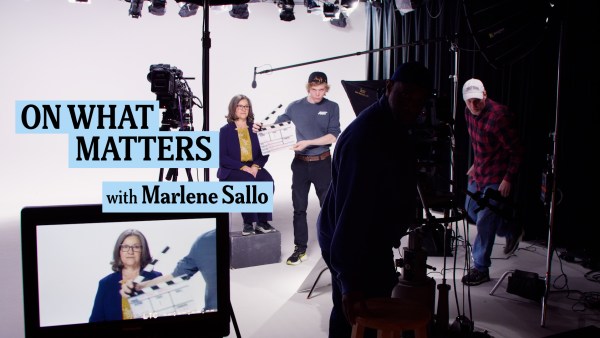
Centering Disability Rights and Justice With Marlene Sallo and Hilary Pennington
Marlene Sallo of the National Disability Rights Network and Hilary Pennington of the Ford Foundation talk about the systems that support and fail the disability community and how disability justice is essential to building a multiracial democracy.
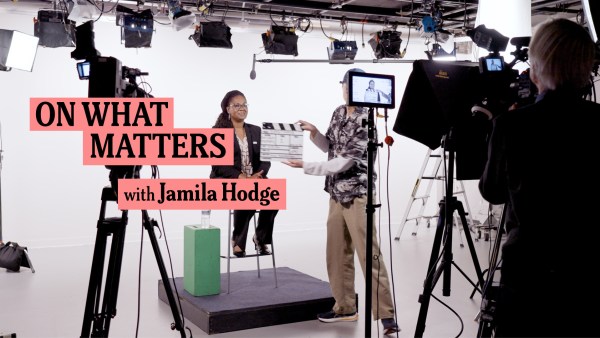
Advancing Community-Based Violence Intervention With Jamila Hodge and Sarita Gupta
Jamila Hodge of Equal Justice USA and Sarita Gupta of the Ford Foundation talk about community-based violence intervention and the importance of promoting a trauma-informed public health response to violence. Jamila explains how, if we want to address institutional racism, we must address the root causes of violence and center those most impacted.
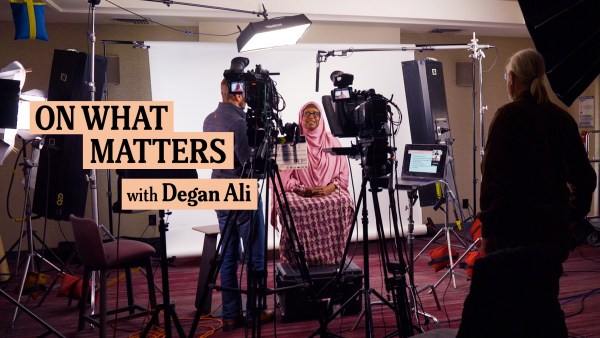
Decolonizing Humanitarian Aid With Degan Ali and Martín Abregú
Degan Ali and Martín Abregú talk about shifting to locally led development and decolonizing aid. Degan shares why we must rethink current structures of providing aid and have local civic society organizations play a stronger and more strategic role in global policy debates.
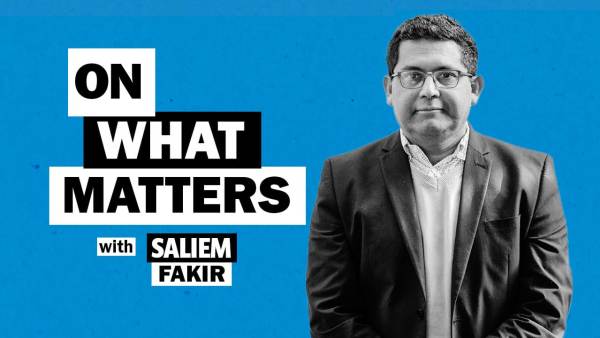
Working Towards a Truly Just Energy Transition with Hilary Pennington and Saliem Fakir
Saliem Fakir, the founder and executive director of the African Climate Foundation, the first grantmaking foundation in Africa focused on furthering solutions for sustainable climate development, joins Hilary Pennington to discuss the urgent need to address climate change and South Africa’s promising Just Energy Transition Partnership.
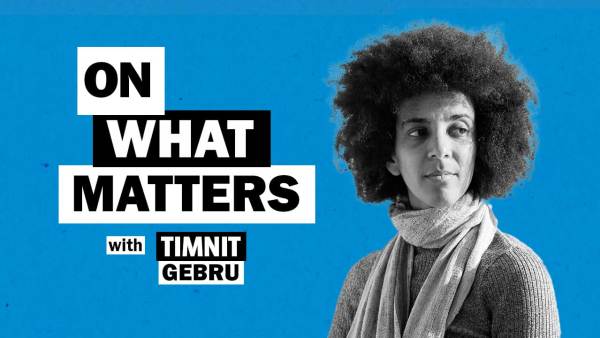
Making AI systems more just with Hilary Pennington and Dr. Timnit Gebru
Dr. Timnit Gebru, founder and executive director of the Distributed Artificial Intelligence Research Institute (DAIR), joins Hilary Pennington to discuss how an inclusive and collaborative approach to creating AI systems can address the uneven benefits and harmful impacts of technology on society.
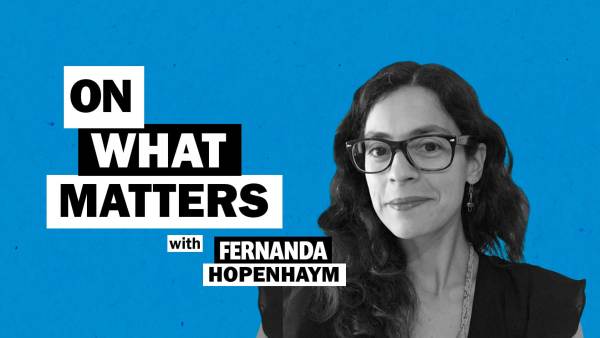
Holding corporations accountable with Hilary Pennington and Fernanda Hopenhaym
Fernanda Hopenhaym is the co-executive director of the Project on Organizing, Development, Education, and Research (PODER), a nonprofit in Latin America that pushes for corporate accountability for human rights and environmental abuses. Fernanda and Hilary discuss how to keep businesses ethical and transparent by using feminist and human rights organizing strategies.
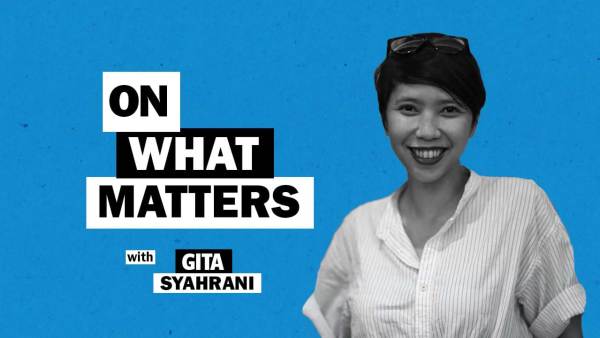
Saving forests while eradicating poverty with Hilary Pennington and Gita Syahrani
Hilary Pennington talks with Gita Syahrani about how engaging Indigenous and local communities in sustainability efforts can lead to greater economic mobility for them. Her work shows how civic engagement at the district level can have global impact.
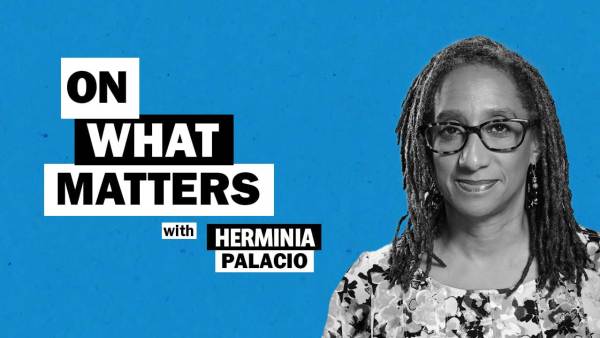
The future of reproductive justice with Hilary Pennington and Dr. Herminia Palacio
Hilary Pennington and Dr. Herminia Palacio discuss this moment in the reproductive justice movement, how different communities are impacted, and what the United States can learn from countries that have won gender and reproductive health victories.
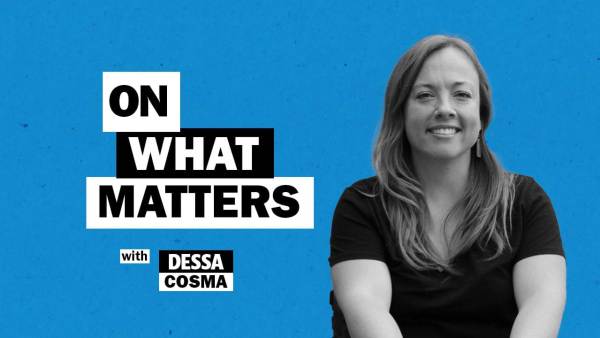
Reimagining how we think about disability with Hilary Pennington and Dessa Cosma
Hilary Pennington talks to Dessa Cosma about disability justice and inclusion. They discuss the importance of using intersectional approaches to activism and how to restructure the economy to be more just for disabled people.
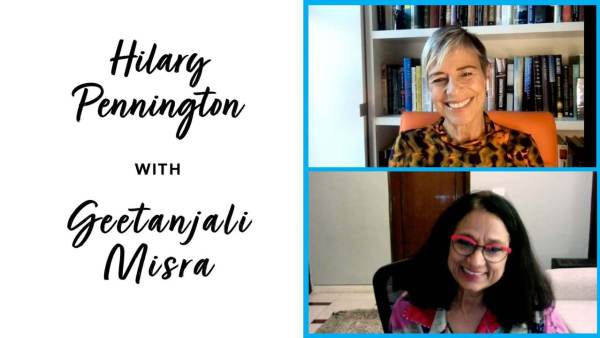
The future of feminism: Hilary Pennington with Geetanjali Misra
Geetanjali Misra has bore witness to the evolution of feminism both on the ground in the U.S. and India and in her work as an activist. Seeing patterns change and movements shift, she speaks about the importance of intersectionality in building a more inclusive feminist future.

COVID’s impact on civic space: Hilary Pennington with Poonam Joshi
Civic space is essential for democracy. It allows people to participate in society and communicate freely and without discrimination. But, according to Poonam Joshi, director of Funders’ Initiative for Civil Society director, there are threats that need to be addressed before we solidify the civil society we want in the future.
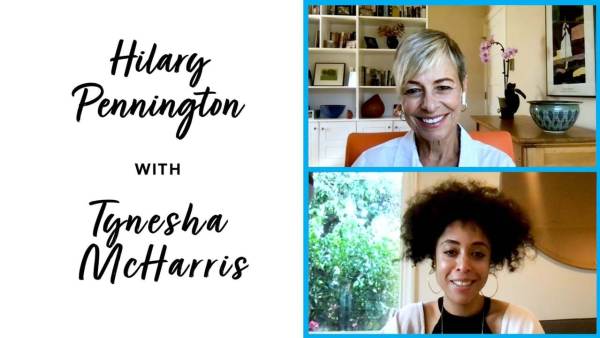
Funding Black feminism: Hilary Pennington with Tynesha McHarris
Black feminist movements are advancing social justice globally. Tynesha Harris, one of the founders of the Black Feminist Fund, aims to channel more support to movement leaders and create a model of true solidarity. Racial, gender, and class injustice need an intersectional approach that acknowledges the inherent value of Black women.

Philanthropy and environmental justice: Hilary Pennington with Laura García
When it comes to climate change, time is running out. But communities all over the world are working on solutions, and philanthropy needs to center their ideas and perspectives to win this fight. Laura Garcia, CEO of GlobalGreen Grants Fund, shares how funding grassroots movements can address challenges at the intersection of social and environmental justice.
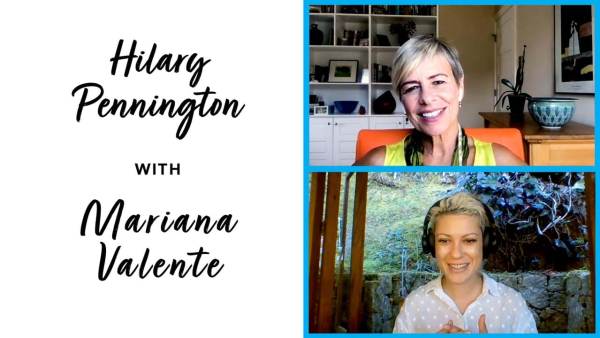
Technology and gender: Hilary Pennington with Mariana Valente
The internet is a force for good, but it must be guided by fundamental human and privacy rights and offer social protection, said InternetLab director Mariana Valente. In this way, technology can advance equality and, with the right policies in place, be used as a tool for advocates to organize.
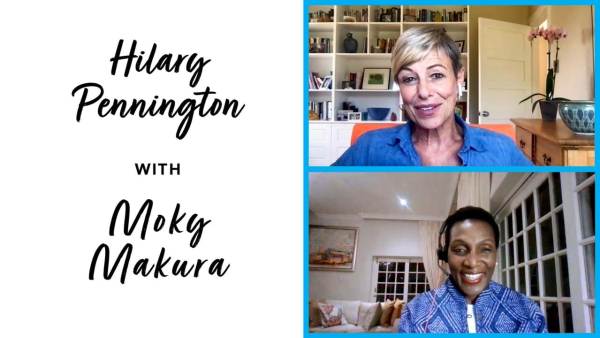
The power of storytelling: Hilary Pennington with Moky Makura
For too long, Africa has been defined in the media by stereotypes and oversimplified narratives. With Ford’s support, Africa No Filter is disrupting these narratives by empowering storytellers helping to create a nuanced, balanced view of the continent and an equitable, inclusive way of how to partner with it.
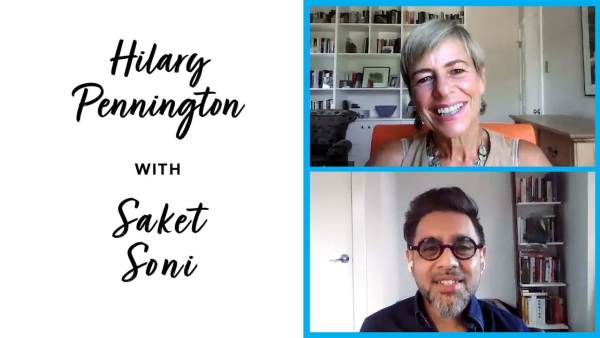
What essential workers need right now: Hilary Pennington with Saket Soni
Disasters present the opportunity to bring us together and give us the chance to reevaluate our priorities and ask what’s really important. Labor organizer Saket Soni sees COVID-19 as a prologue to other threats, like climate change. He says disaster responses need to focus on strengthening essential workers.
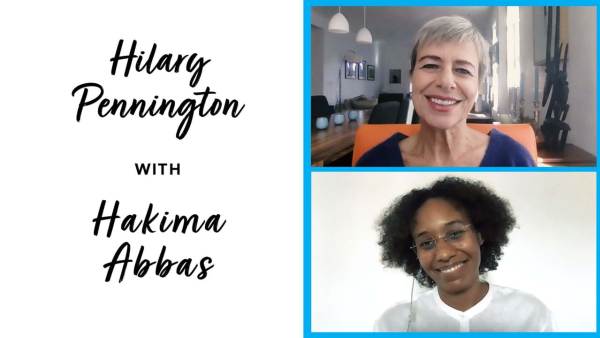
How young feminists are organizing: Hilary Pennington with Hakima Abbas
COVID-19 has impacted the way we work, but it also exacerbated gender inequality in the workplace. Hakima Abbas, of the Association for Women’s Rights in Development, believes we can prevent any further damage by including feminist leaders across the board in devising solutions.
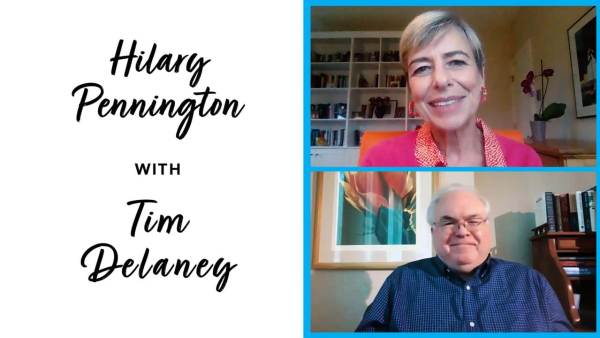
How nonprofits make an impact: Hilary Pennington with Tim Delaney
Over one million nonprofits exist in the United States, but Tim Delaney, the CEO of the National Council of Nonprofits, has an idea to make them even more impactful. To him, bringing social justice groups together can transform philanthropy for the benefit of all.
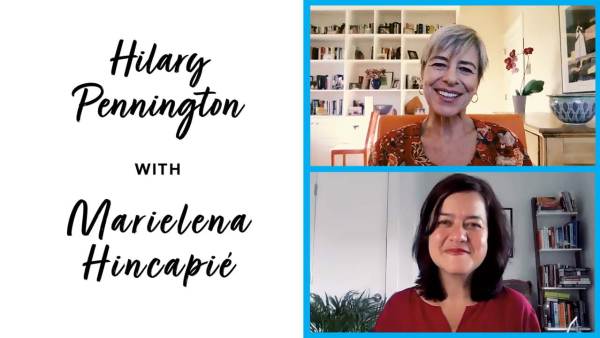
Immigrants are essential: Hilary Pennington with Marielena Hincapié
Immigration has been used as a weapon to divide the United States. The National Immigration Law Center aims to help the country understand that immigrants are not only important members of our communities and essential workers, but they are also valuable political constituencies needed to make American democracy work.
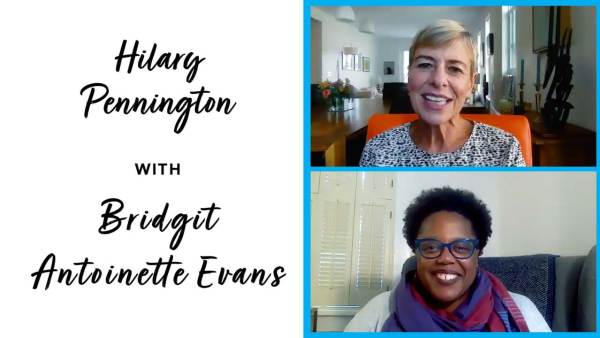
Social justice and pop culture: Hilary Pennington with Bridgit Antoinette Evans
Pop culture plays an important role in advancing social justice. Bridgit Evans of Pop Culture Collaborative produces cultural strategies that build on points of connection to ensure policy changes are not just symbolic. By finding commonalities through culture, she believes we can create a world where everyone feels they belong.
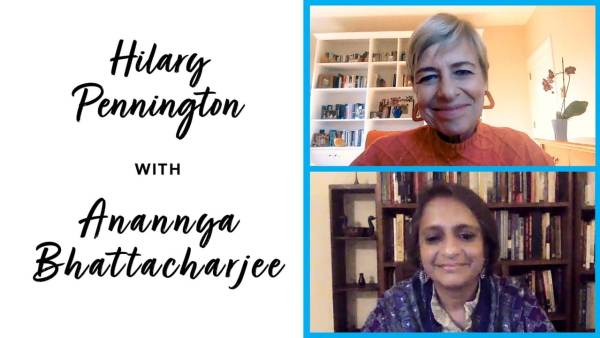
Global work needs to be local: Hilary Pennington with Anannya Bhattacharjee
While the labor movement has worked to improve the lives of garment factory workers globally, activist Anannya Bhattacharjee advocates that solutions need to start locally and come from the ground up to have a significant impact on workers’ lives.
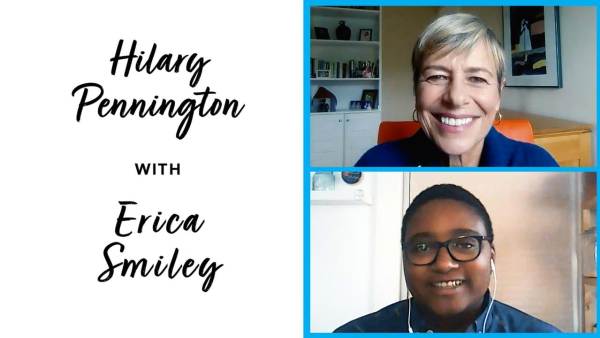
Essential workers are the economy: Hilary Pennington with Erica Smiley
The COVID-19 pandemic has dramatically changed the way we as a world work. As we face this inflection point, Erica Smiley, executive director of Jobs With Justice, believes people—especially essential workers—need to have the right to come together collectively to organize and negotiate their conditions to build a global economy that works for all.

The urgency of this social moment: Hilary Pennington with Eric Ward
We need to dismantle racism to make inclusive democracy truly possible. Eric Ward of Western States Center believes smaller movements can help support bigger waves of change. From creating cohorts of emerging leaders to encouraging small group interactions can help protect democracy and put an end to white supremacy.